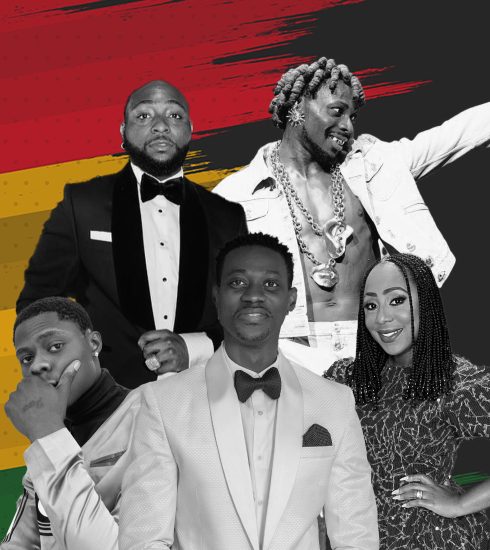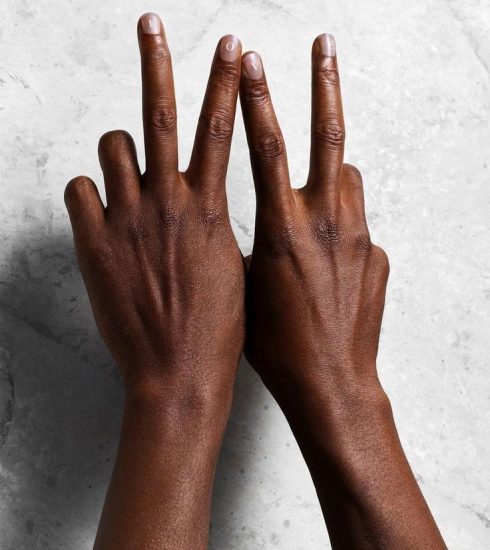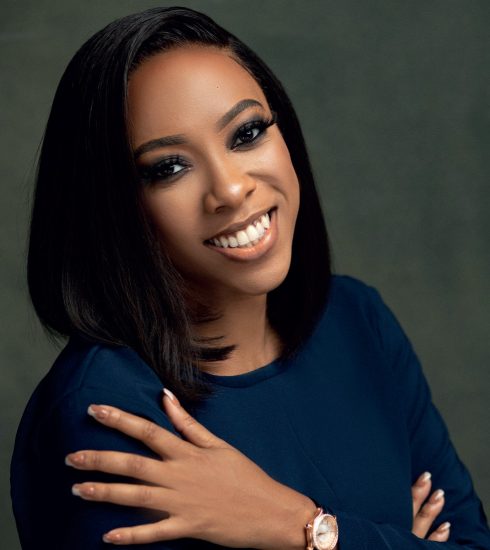People, Partnerships, Progress: A Conversation With Dr Bobby J. Moroe
Nigeria and South Africa, two of Africa’s biggest nations, have had a blissful relationship over the years. Although both countries share a similar history of the British colonial era, their trajectories since independence have been quite dissimilar, as the battle for where the highly coveted title of “giant of Africa” should go to. But international relations run deeper than that.
Between diplomatic foreign policies and the back-and-forth migration of both locals across territories, the relationship between Nigeria and South Africa has been symbiotic and complementary since we can all remember.
In a sit-down with DOWNTOWN’s Editor, Onah Nwachukwu, South African Consul- General Lagos, Nigeria, Dr Bobby J. Moroe discusses the similarities and differences between South Africa and Nigeria, the unfortunate attacks perpetrated by South Africans on Nigerians, and the role of the consulate in fostering a healthy relationship between both countries.
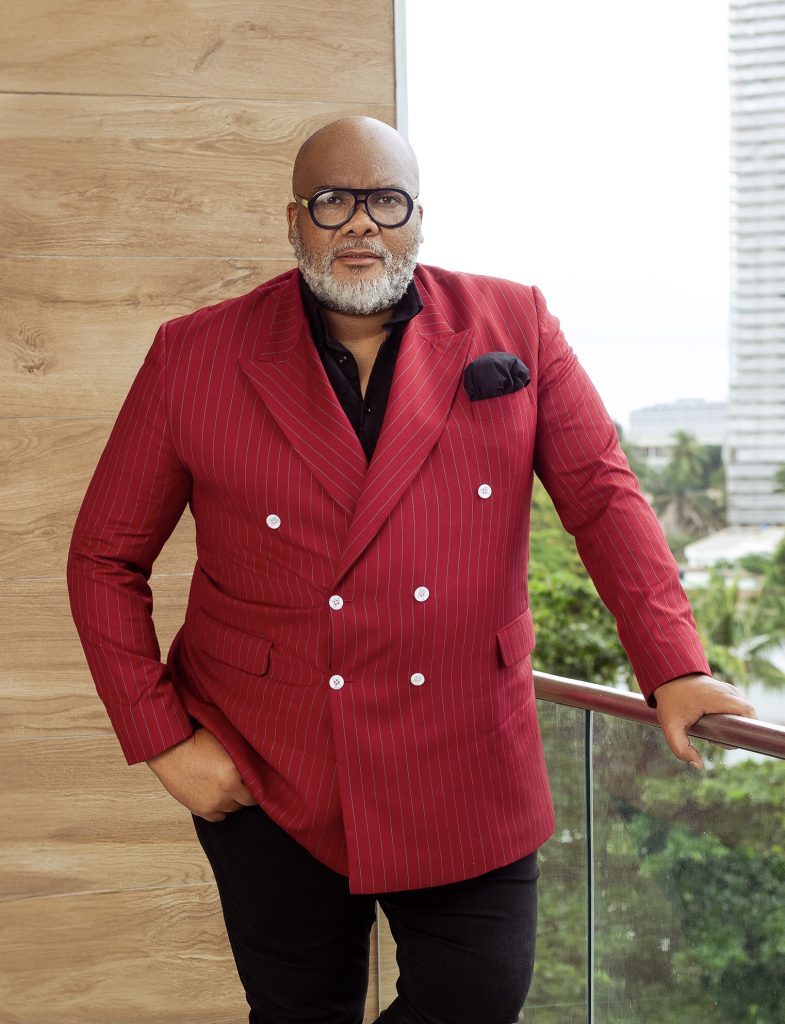
Let’s meet Bobby Moroe.
I am the Consul-General of South Africa in Lagos, responsible for nine states. We also have an office in Abuja, the high commission responsible for the rest of the other states.
I’ve been here in Lagos for about 10 to 11 months now. Part of my responsibilities here as Consulate-General is to foster trade and investments between South Africa and Nigeria and extend consular assistance to South Africans in distress in Nigeria, particularly the jurisdiction of my responsibility. I have been with the foreign ministry for almost 20 years; I was an academic before I became a diplomat, teaching Politics and International Relations at the Northwest University in South Africa. I have studied International Relations and Politics extensively and hold a degree in Political Science, an Honours and a Master’s degree in International Relations and Peace Studies, a PhD in Political Sciences and Diplomacy, and a Professor of Afrocentric Studies and Public Affairs at the Northwest University. I teach, conduct research and do some supervision. Those are the two areas of my responsibilities for now. I’m a diplomat but also a scholar, and I try by all means to create a hybrid, looking at how the combination of my theoretical perspectives as a scholar can benefit my underground work as a diplomat.
So it has always come out quite very handy because diplomacy in theory and practice are two different phenomenons. Still, the advantage is that you have experience on both sides—theory is more superficial. Practice is more realistic, so it is only when you begin to practise as a diplomat you’ll realise that the theoretical perspectives are not necessarily applicable in the practical environment. So daily in my work, I try to make use of these experiences to the extent that I can to see how best they can benefit the work that I do, but most importantly, to ensure that it benefits South African foreign policy by all means.
How easy is it to get a visa to South Africa? Is there any special category of people who are given preferential treatment?
Getting a visa is not about whether it’s difficult or easy; you just have to comply and meet all the necessary requirements. If you don’t meet the requirements, you don’t get a visa. If you do, you get a visa. And all the information is available on www.vfsglobal.com. But despite the fact that we have all the requirements placed, there are individuals who still don’t meet them but still apply. However, what we have done is we have requested VFS to screen all applications so they don’t accept those that do not qualify. It would be a waste of their money for us to accept when we know that perhaps the applicant doesn’t have a bank statement or yellow fever certificate, so we make it easier for them by making sure that we don’t accept incomplete applications. It’s also savings on their part. But there are also aspects that we’re beginning to emphasise.
Some of the highest rejections are based on yellow fever certificates, so we emphasise the importance of the yellow fever certificate and make sure that the agency that issues them records that yellow fever into the app because when an applicant submits their application, not only do we scrutinise the certificate, we also use a QR scanner to verify their validity.
Sometimes they forget to punch it on their app. We also emphasise the importance of submitting credible bank statements with a sufficient amount of money. So we try by all means to make it as easy as possible for people to get visas. Remember, our responsibility as a consulate is not to reject visas; it’s to facilitate the issuance of visas. This is why we exist; otherwise, it is going to be counterproductive for us if we say that we want to increase trade between South Africa and Nigeria or position South Africa as the best destination for tourism, education and other activities, and yet we are making it difficult for people to obtain visas.
Our responsibility is to simplify the process, but applicants must also meet us halfway by making sure that they comply.
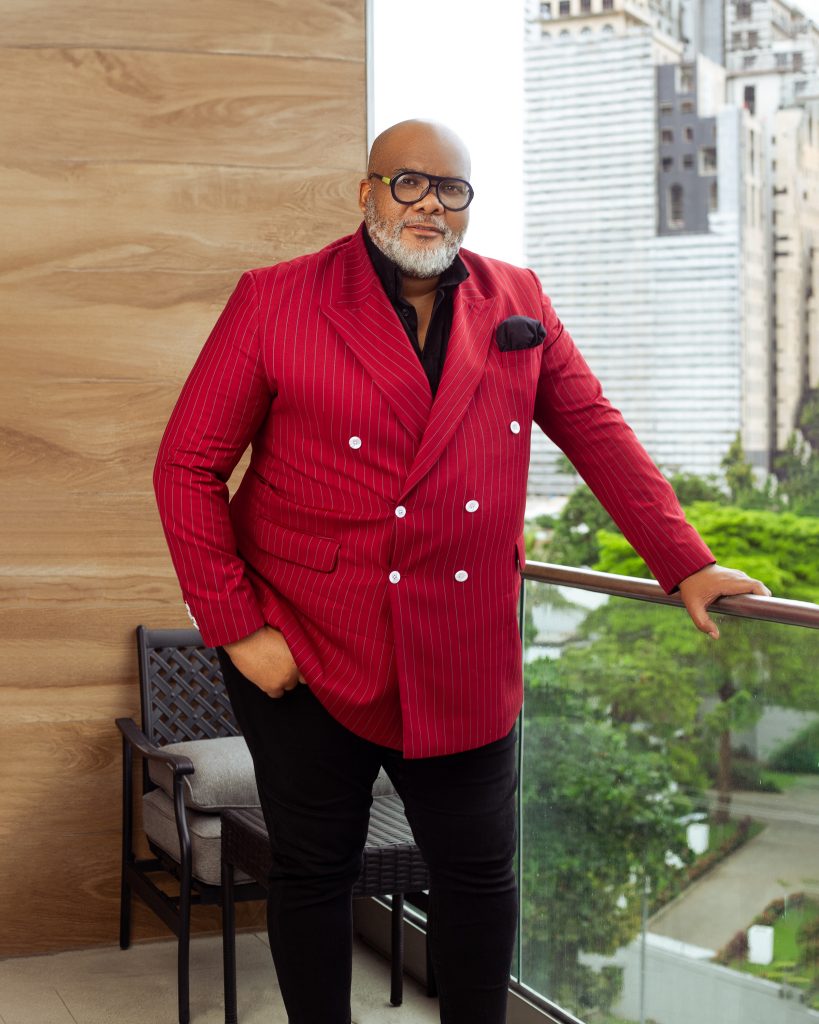
How can Nigerians and South Africans live in harmony with the xenophobia happening…?
There’s no xenophobia in South Africa. I have said it before and will say it again. These activities that are happening in South Africa are acts of criminality during economic and social depression. These are seasonal acts, committed by criminal elements in society.
What you see in this nomenclature called xenophobia does not best represent the sentiment of an ordinary citizen in South Africa. Why do I call them seasonal? There are no activities taking place now, but there are still Nigerians in South Africa. So when you say South Africans are xenophobic, this must be an ongoing activity. I prefaced by calling it acts of criminality during the economic depression. These are acts of violence that normally erupt when people lose jobs, when the rate of unemployment increases, or when there are criminal activities within society which are suspected to have been committed by certain members of society. But when you look at people who participate in those activities, they are people who are criminal elements themselves, and ordinary South Africans understand that South Africa, as a democratic country, has been built by people from all walks of life, including the continent. Nigeria played a very key role in contributing to the struggle for liberation in South Africa. There is a very thorough understanding in South Africa by South Africans about the role that Nigeria and other countries have played in making South Africa what it is today. South Africa gained its democracy in 1994. Amongst others, Nigerians were very excited because they knew that these were the benefits of the struggle to which they have contributed. There was an outpour of many people—our brothers and sisters from all over the continent—who went to South Africa post-1994 to contribute to the development and the creation of a new nation that South Africa was to be. In South Africa, foreigners have been there for as long as I can remember. I had teachers and professors when I was in high school and university who had been there for many years; some were Nigerians, some Tanzanians, Kenyans, and so on. In fact, in my mother language, the word ‘xenophobia’ doesn’t exist because, as Africans, we do not treat each other that way. But one other thing that I want to indicate to you is that in many countries whose names I won’t mention, acts of violence amongst locals and foreigners have happened. But they are not called xenophobic attacks, they are called something else. But when they happen in South Africa, they are called xenophobia. These intermittent acts of violence during the social and economic depression in South Africa are not only happening in South Africa. South Africa is not the only country facing the social and economic challenges we face. We are not the only country that plays host to foreign nationals because we have a very democratic government, one of the best constitutions you can ever find in the world.
The preamble says that South Africa belongs to all those who live in it. Tell me of any country whose preamble can read such. The unfortunate part is that South Africa has become synonymous with xenophobia, but South Africans are not xenophobic.
We have South Africans who are married to Nigerians, Kenyans, Tanzanians, and so on. I have been in Nigeria for more than five years and it’s a home away from home for me. I’ve witnessed and experienced people falling in love and getting married here. South Africans have kids with Nigerians, and many Nigerians have gone to South Africa to live and build their families there. They are assimilated within society and are progressive members of the society. They work in South Africa, their life is there, and they live in South Africa peacefully. So xenophobia in South Africa is just a media farce we need to take care of. But how to do that is when we become upfront with South Africa and Nigeria and talk about the programs we are doing to promote social cohesion and understanding between the two countries. These two continental giants are supposed to work together to advance industrialisation and development in the continent, and we have been doing that for quite a number of years. But what we need to do is to educate individuals about the work that we do so that they can be understanding and appreciate what exactly it is we do and how our work affects ordinary men and women in the forgotten corners of both countries. We need to intensify our campaigns and educate individuals about the extent to which they can benefit from the social cohesion created between the two countries. Over the years, we have reacted to the media rise; we don’t tell our stories, but we have started telling our stories. It’s very important that we write our narratives the best way we can because if we allow it to be done by others, they will do it the best way they can, and the best way they can is to distort it.
How easy is it for a Nigerian to set up a business in South Africa?
In South Africa, there has been quite a number of concerns that Nigerian investors have raised about the processes that you go through when you invest in South Africa.
Those requirements are applicable to any other country, including Nigeria. If a foreign national is going to establish a business in South Africa, certain regulations must be complied with. I do not necessarily have them with me now, but I know that elements of partnership must be created, either 49 or 51 percent. You also have a local partner.
You also employ locals like South African companies in Nigeria here employ locals and create job opportunities for Nigerians here. What we intend to do is to continue to intensify the investment drive between South Africa and Nigeria. Currently, the numbers are quite skewed. You have more South African companies in Nigeria, compared to Nigerian companies in South Africa, and one of the gaps that we’ve identified was that we need to encourage SMEs to play a key role in the BNC (Bi-National Commission) because there’s a realisation that most of the time we tend to focus on the blue chip companies like Multichoice, MTN, and so on, yet, there are so many other smaller companies that contribute to the growth of any country’s economy, so there is a need for us to begin to create opportunities for them, and if need be, try and come up with special dispensations through which it could be easier for them to establish companies in South Africa. On a state-to-state level, our relationship is quite very sound, there are a lot of engagements on issues of common interest and mutual benefit, and as far as issues of global governance are concerned, we mostly speak with the same voice at the United Nations General Assembly. For us, it is to take the baton from where they (past Nigerian and South African governments) stopped and try and intensify whatever it is that we need to intensify between the two countries. After all is said and done, Nigerians and South Africans have to work together, and together we have a good story to tell to the world and the rest of the continent.
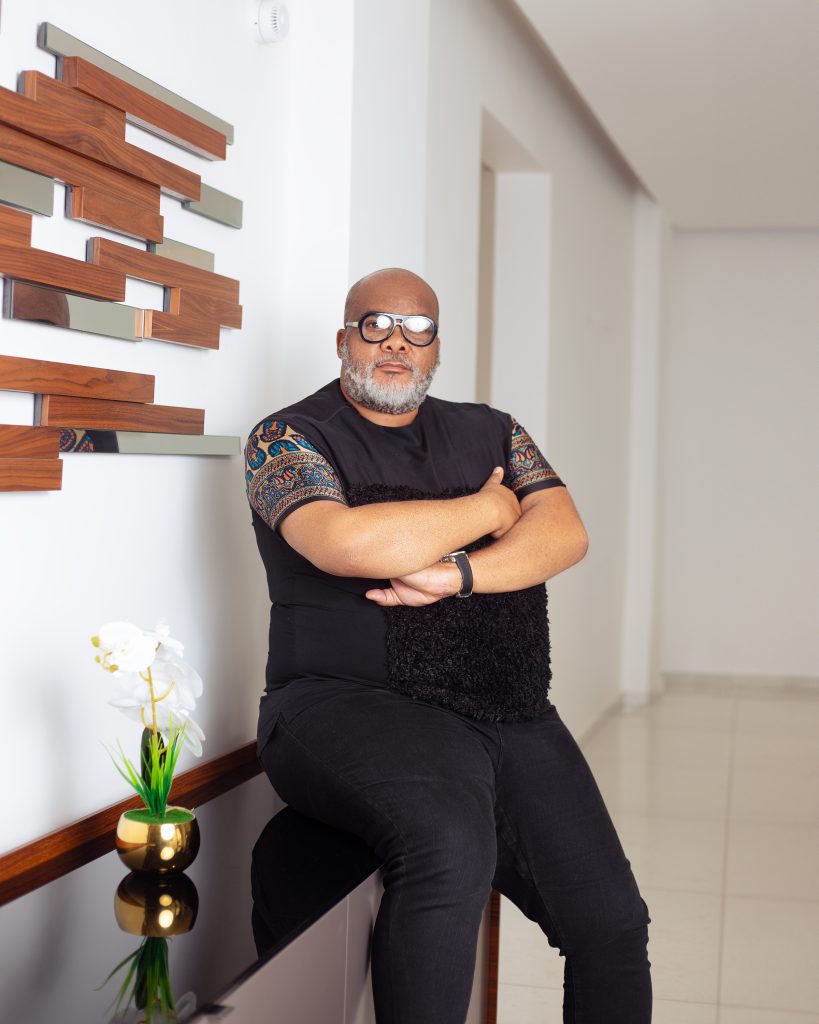
In working together, what have you put in place to encourage Nigerians to come to South Africa and invest in a business?
We normally have road shows and business roundtables. We are also members of the South Africa Nigeria Chamber of Commerce, which takes place on the last Thursday of every month; where we use those existing platforms to invite potential investors and introduce Nigerian and South African corporations interested in creating partnerships.
This is a platform that creates multiple streams of opportunities for business and social cohesion between South Africa and Nigeria. Once a quarter, we go to different states. We are due to go to Ogun state on the 30th of this month. As you may know, South Africa has become a key destination for Nigerians for various reasons—tourism, weddings, conferences, and so on. So we receive a lot of visa requests that are related to that. We also have South African companies here providing training for their Nigerian employees in South Africa, so we receive many requests for such categories of visas.
What are you doing to enhance tourism between Nigeria and South Africa?
We do road shows. The same thing we do with trade and investment, we do with tourism, arts and culture. The last road show that we did was in April. On the 4th of July, we also hosted a global event that had the acting CEO of SA Tourism West Africa in attendance. He delivered a sterling presentation about the tourism packages that are available in South Africa for Nigerians. And I also had the opportunity to speak at the event likewise, to encourage them to visit South Africa purposes.
On a lighter note, you are a very fashionable person. What do you think about Nigerian fashion?
Thank you very much for the compliment.
Nigerians are at a different level. My fashion is a result of the influence that I got from Nigeria over the past five years. I have learned a lot about fashion in Nigeria. Nigerians are very daring, creative and bold when it comes to fashion. They are not shy to display their creativity in colour or other forms. But what I appreciate the most is that unlike us in South Africa, Nigerians are very fashionable, but in the fashion that they display, they infuse their culture in it. Most of the designs that you witness have a very strong element of local traditions, be it Hausa, Yoruba and Igbo. I think for us, that’s an element we miss in South Africa.
When we talk about fashion in South Africa, we are more Eurocentric. We determine the extent to which we are fashionable by taking a leaf from what is happening in Paris Fashion Week and so on. But what Nigerians do is bring Nigeria into Lagos Fashion Week, so I’ve been quite impressed with what they do. Uti Nwachukwu is one of the celebrities and fashion icons that motivates me.
I always look at how he dresses up, the fusion of clothes that he wears. He wears African, but with a very different touch of Western design.
There would always be a very strong element of African touch, particularly to promote Nigerian culture. That’s one other thing that I admire about Nigerians; they are very cultural. That also goes for the cuisine; Nigerians do not compromise when it comes to their food to the extent of travelling with all the ingredients. Nigerian food is very expensive in South Africa, but we are not short of Nigerian food; there’s a lot of them, so some of us were exposed to Nigerian food and culture very early. So when I came to Nigeria, I had a fair understanding of the food. But I only discovered when I came here that I have a lot of Igbo friends. In the past, I didn’t know the distinction, I only knew that the person was Nigerian, but I didn’t know that it is important to know whether one is Igbo, Hausa or Yoruba. Our backgrounds are completely different. In South Africa, we also have different ethnicities, but it’s not something that is very prevalent within society.
You’re well-travelled, obviously. What would you say differentiates other countries from Nigeria? I will go back to the issue of culture. Nigerians are very proud of their culture and are conscious of where they come from. There are lots of people who are chiefs in Nigeria. The fact that in 2023, you still have young people who consider chieftaincy quite very important must tell you something about Nigerians themselves and the importance they attach to their culture. Regardless of where they go, they always carry their culture with them either through food, language, clothes, arts, film, and so on. Number two, wherever Nigerians are, they display a very high level of resilience and commitment to what they do. I don’t know where they get the strength and tenacity from. Perhaps it is in their DNA. Nigerians are very outspoken; they call a spade a spade, not a garden tool. That’s one of the virtues I’ve learned in Nigeria is that if you want to raise an issue, raise it or forever hold your peace. I have become a better person personally and professionally in the past five years because of lessons I have learned from individuals and entities from my interactions in formal and informal environments. I often go to the market, and Balogun is one of my favourite markets; I have local friends there that I engage with. We discuss issues of common interest, culture, and food. I don’t discuss soccer because I don’t watch it. It has been that once I’m done with my tour here in Lagos, I go to South Africa a better person but, most importantly, try and transfer the knowledge and skills that I have learned in Nigeria to my fellow South Africans and one of the things I am going to transfer really is the virtue of hard work, hard work pays. Nigerians are very resilient, and I commend them for that.
How would you compare Nigeria to South Africa?
There must not be any competition. There are so many things that Nigeria has that South Africa doesn’t have and so many things that South Africa has that Nigeria doesn’t. So we have to look at each other through the prism of complementing each other rather than competing with each other.
One of the issues I’m making reference to is the Afrobeats. When you talk about music, Afrobeats is very popular in South Africa, and ironically, Amapiano is popular here too. So we need to use music as a soft power to bring together South Africans and Nigerians. We have exceptionally good fashion designers in both countries, but I think if they work together, they can learn more from each other. You also have institutions of higher learning; we are currently working on finalising two very important memorandums of understanding between the state of Gauteng and Lagos to focus on issues of common interest from your areas of agro-processing, infrastructural development, and so on. We also have another MoU, which is equally critical, a draft that is being sent to the University of Lagos.
It’s an MoU between Northwest University, which happens to be my alma mater in South Africa and the University of Lagos. We would like to work together with the University of Lagos by conducting student exchange programs, faculty exchange programs, convening seminars and workshops, and identifying common themes that will be of benefit to both South Africans and Nigerian students, and those things must basically focus on some of the challenges that we are facing in society and government. Currently, South Africa is facing power challenges. If we could have conferences linked to that, get experts from Nigeria who can share knowledge and transfer skills, for us to provide solutions to those challenges we’re facing. So after all is said and done, the kind of collaborations that we envisage are the ones that will build society.
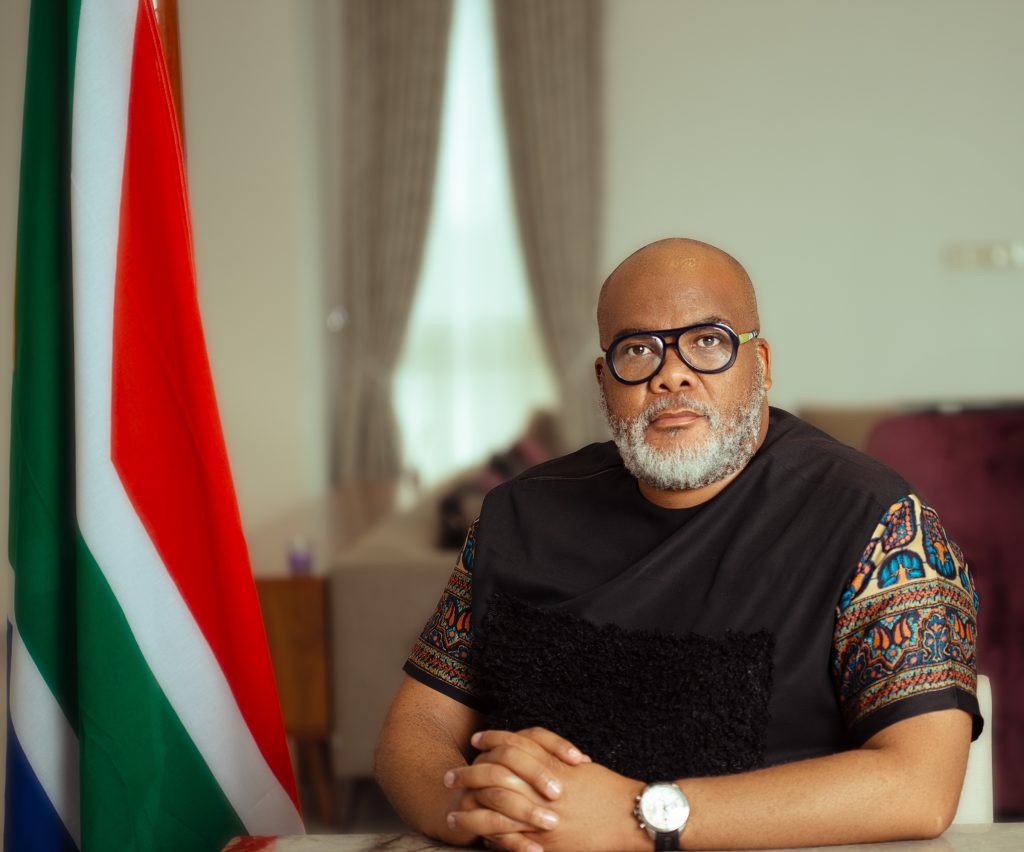
What would you say is your favourite Nigerian meal?
Egusi. I normally eat it on its own; I mix it with chicken. I’m pepper intolerant, and one of my other favourite foods is pepper soup without pepper. I’m quite familiar with a number of Nigerian foods, such as ponmo, amala, suya, abacha, and so on. But unfortunately, because of my intolerance to pepper, I don’t indulge in all. Nigerians really love their culture, and they display that through their love for their own food, so we never miss the opportunity of preparing Nigerian food at most of the events that we have. We also have a very good number of South Africans who enjoy the food.
Although we are not a pepper nation—you get pepper on request in most restaurants in South Africa—there are South Africans who really love pepper, and I think their love for pepper draws them to visit Nigeria to enjoy the hospitality, which is normally displayed through culture and food.
Let’s talk about the crime rate in South Africa. What are you doing to put in check the crime rate in South Africa for the safety of foreigners or even for the South Africans themselves?
There’s no particular set of crime regulations for foreigners and South Africans because everybody becomes a victim of crime. So whatever regulations that are in place are for the benefit of everybody in South Africa.
Like any other country, South Africa is not immune from witnessing crime. The only difference is the types of crime and the intensity of crime.
But in the past few years, our government has done very well in trying to create a conducive environment for everybody, including foreigners, to come to South Africa and enjoy the beauty and hospitality of South Africa in a very safe environment. There’s been a huge recruitment drive for the members of the South African police services.
An internship program has been advertised recently, which closes on the 16th of August; it’s the recruitment drive of South African police services members who will be on internship. So these are the efforts by the government to increase human capital so that there’s a lot of police visibility. When you compare the past three to four years in South Africa, you will realise that there’s more police visibility than before. And one of the advantages we have now is that the current minister of police is the former police commissioner in South Africa, so he has experience as far as these are concerned. But we also have community policing forums because you will not find police everywhere within communities.
We have self-funded community policing forums, which are a grouping of individuals who reside within a particular locality. They bring their resources together to ensure they keep the crime levels. But you also have security companies that are working together with members of the South African police services and ordinary civilians. And you also have whistleblower programs where individuals who witness certain forms of crime can report them. And they are also protected. Their identities are protected, and so on. But you also have a lot of South Africans who have become intolerant to crime, who have opened up NGOs that serve as rehabilitation centres for those who have been perpetrators of any form of crime, to rehabilitate them, take them out of the streets, and also take them out of the participation of crime. But what the government has also done as far as rehabilitation and reform are concerned, the Department of Correctional Services is not called prison. We don’t call them prisons.
We call them correctional services because when perpetrators of crime are arrested, the purpose is not to punish them, but to reform them so that they go out of correctional institutions, better people in society who can contribute to the greater good of what society wants to achieve.
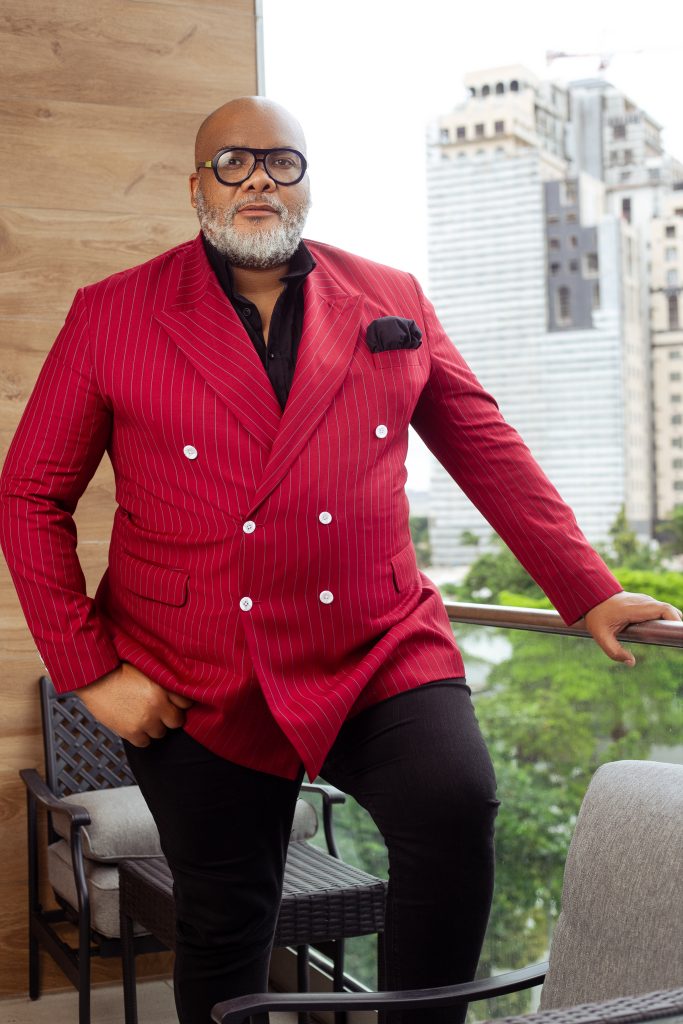
What message would you like to leave with Nigerians in general?
Firstly, I want to commend Nigerians for their resilience, tenacity, and hard work displayed at home and elsewhere. Nigerians perform exceptionally well everywhere in the world as doctors, scientists. You have a lot of Nigerians who appear on the Guinness Book of Records for various reasons, from those who cook for the longest hours to those who have performed breakthroughs in medicine who have discovered cures for certain illnesses. You find them in many, many other countries, and that’s a sign of resilience and commitment. And I so wish that a lot of us in the continent can replicate that.
That’s number one.
Number two, I think there’s a lot that we can do between South Africans and Nigerians. We need to develop programs that bring us much closer so that we experience each other; we understand each other. Because until such time that I understand that your favourite meal is egusi and Ponmo, I will not appreciate where you come from, and I will not appreciate your culture. Until I understand your native clothes, it will be very difficult for me to understand and appreciate where you come from. So I think if we have more gatherings that seek to promote social cohesion, we will have more understanding of each other because what we have now is perceptions about each other. When they meet in a commonplace, they will discover these perceptions are nonexistent. Now what do we do to ensure that we know each other?
That’s what we have to respond to. And this is what we have been at pains to do as a consulate and the South African High Commission in Abuja. And the last part is that Nigeria and South Africa have absolutely no choice but to work together in charting a way forward in the continent. These are the two continental giants— if I exclude Egypt— which are very prominent in the continent and world politics and quite very influential because of their stature. So their relationship is not only important within the context of their bilateral relations, but it’s a relationship that is important to many other countries in the continent. So we must continue to innovate and work together. But in working together, we must bring ordinary men and women into the fold to make them understand. Because after all is said and done, the extent to which the two countries can cultivate a good bilateral relationship is if their citizens have a common understanding of what needs to be done for them to succeed in that relationship.
A lawyer by training, Onah packs over a decade of experience in both editorial and managerial capacities.
Nwachukwu began her career at THISDAY Style before her appointment as Editor of HELLO! NIGERIA, the sole African franchise of the international magazine, HELLO!
Thereafter, she served as Group Editor-in-Chief at TrueTales Publications, publishers of Complete Fashion, HINTS, HELLO! NIGERIA and Beauty Box.
Onah has interviewed among others, Forbes’ richest black woman in the world, Folorunso Alakija, seven-time grand slam tennis champion, Roger Federer, singer Miley Cyrus, Ex Governor of Akwa Ibom State, Godswill Akpabio while coordinating interviews with Nigerian football legend, Jayjay Okocha, and many more.
In the past, she organised a few publicity projects for the Italian Consulate, Lagos, Nigeria under one time Consul General, Stefano De Leo. Some other brands under her portfolio during her time as a Publicity Consultant include international brands in Nigeria such as Grey Goose, Martini, Escudo Rojo, Chivas, Martell Absolut Elix, and Absolut Vodka.
Onah currently works as the Editor of TheWill DOWNTOWN.





